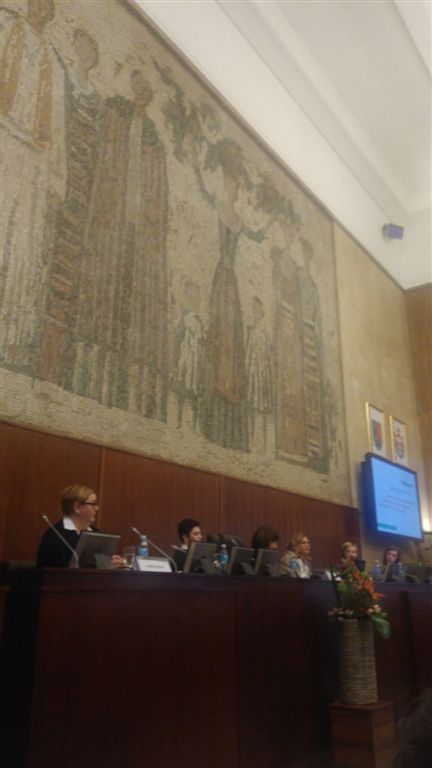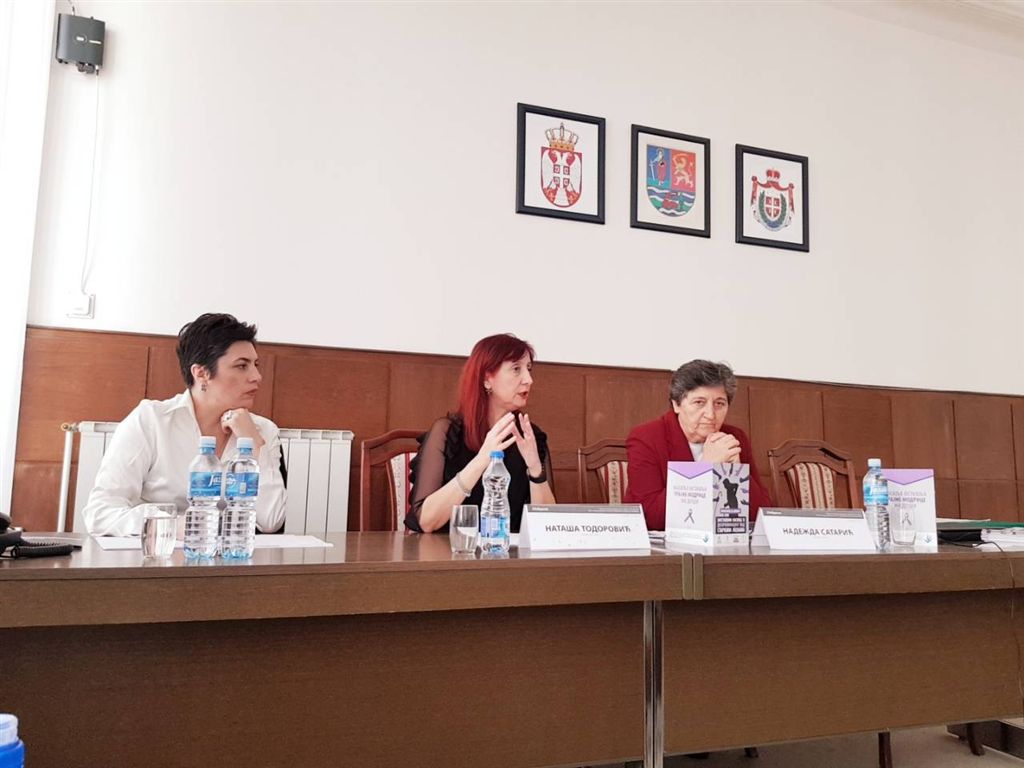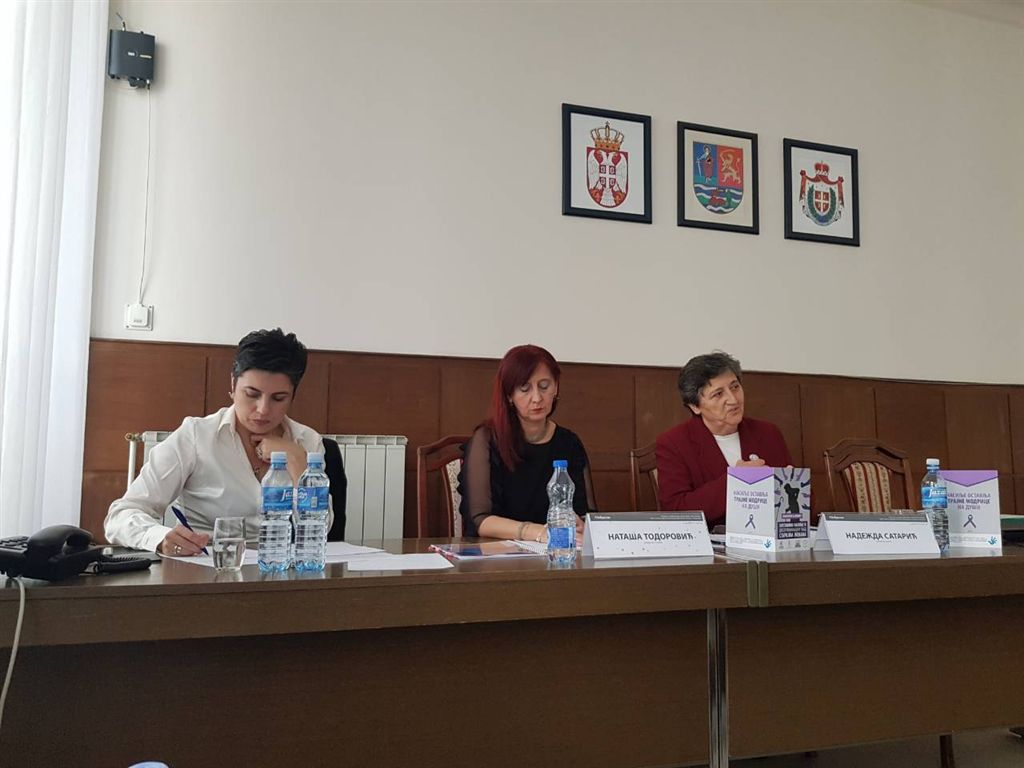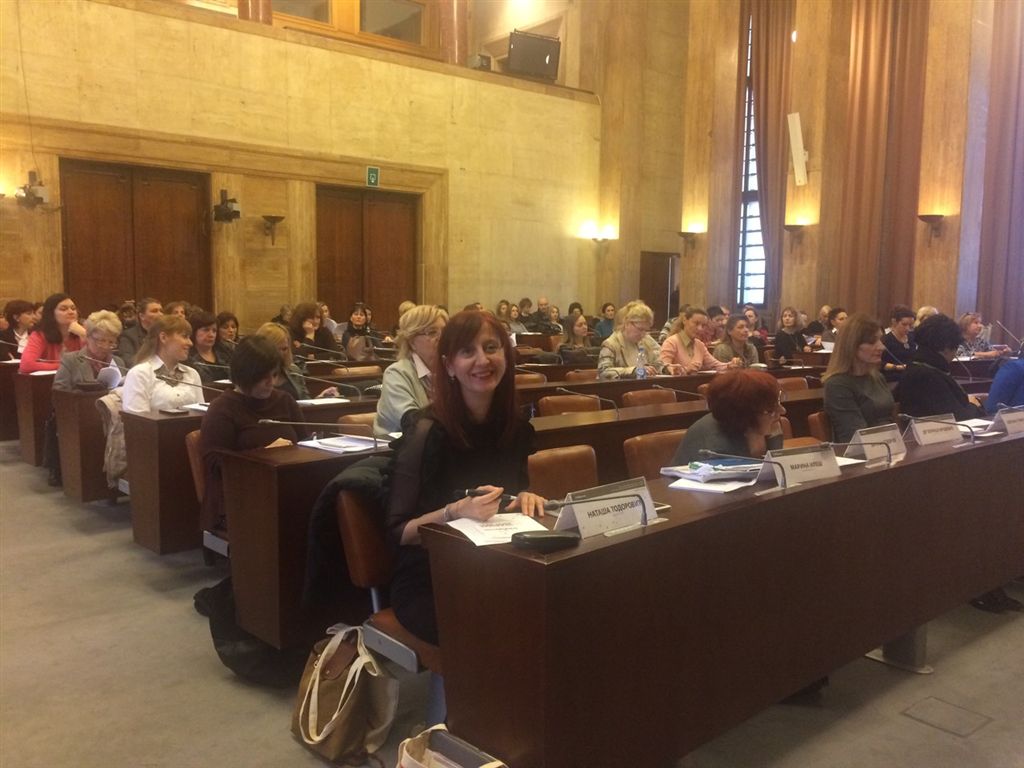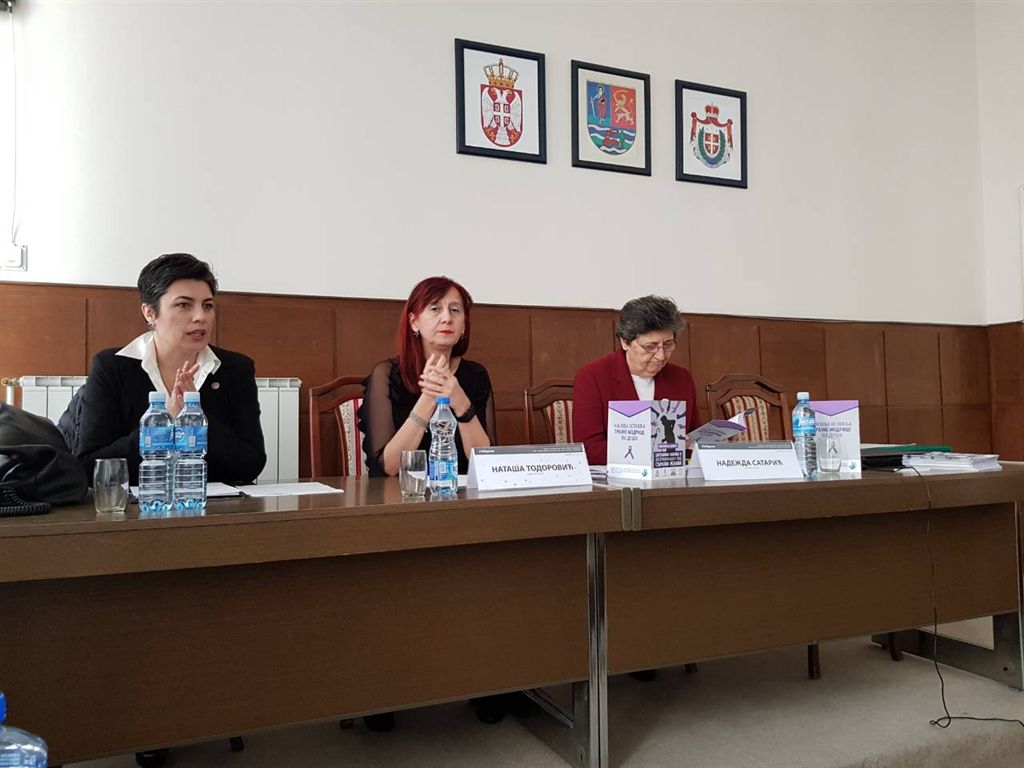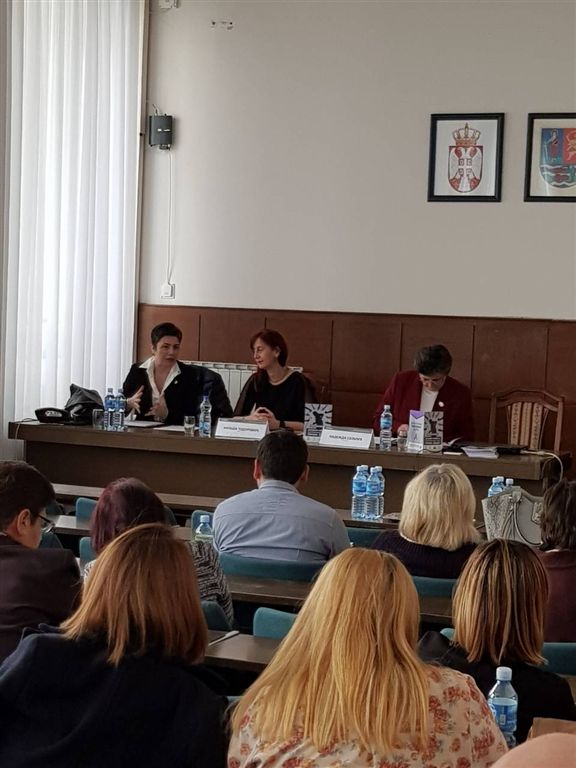- news
- red cross at the „six months of the implementation of the law on prevention of domestic abuse“ conference
Red Cross at the „Six months of the implementation of the Law on Prevention of Domestic Abuse“ Conference
The annual conference of the “Violence-free Network Against” was organised on 12 December 2017 in Novi Sad in the Vojvodina Provincial Assembly. The title of this year’s conference was „Six months of the implementation of the Law on Prevention of Domestic Abuse“ and it was organised by the Provincial Ombudsman The annual conference is an opportunity for representatives of all the institutions working on prevention of domestic abuse to meet and exchange experience, information and discuss the significant topics related to domestic abuse and violence against women. This year Natasa Todorovic from the Red Cross of Serbia participated at the conference speaking on the topic “Domestic abuse of older people with special emphasis on older women”.
The Red Cross of Serbia representative emphasised that elder abuse worldwide is a serious public health and social problem, both in developed and developing societies. Abuse of older women is not adequately addressed, the research is rare as are the adequate prevention policies. International, regional and national legal frameworks are not capable of adequately responding to violence, abuse and neglect of older women.
When speaking about the factors that describe persons at risk of domestic abuse it is clear that older women are at a higher risk than older men. With women, we can see continued abuse during their whole lives , but with older women we lack data as the abuse of women over the age of 49 (the end of reproductive period) is rarely recorded. There is increased risk also for persons with disabilities, functionally dependent persons – those with mobility issues who depend on their caregivers for most functions – persons with physical or mental health issues and persons with cognitive problems. A lot of research underlines dementia and depression as characteristic for older people. Also at risk are persons with low income, living in poverty and being economically dependent on someone else. Higher risk is also identified among women living in rural areas and women with lower level of literacy.
Preventing elder abuse means adopting approach that is based on human rights, questioning negative social norms related to ageing and promoting dignity for older women and men. Most actors agree that better coordination of all stakeholders and institutions is necessary as is faster work of courts and adequate centralised body of evidence and records.
